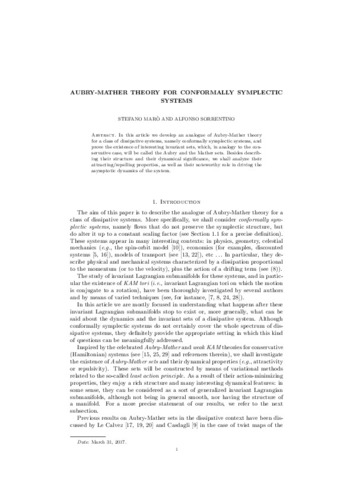Aubry–Mather Theory for Conformally Symplectic Systems
Autor(es) y otros:
Fecha de publicación:
Editorial:
Springer Nature
Versión del editor:
Citación:
Descripción física:
Resumen:
In this article we develop an analogue of Aubry–Mather theory for a class of dissipative systems, namely conformally symplectic systems, and prove the existence of interesting invariant sets, which, in analogy to the conservative case, will be called the Aubry and the Mather sets. Besides describing their structure and their dynamical significance, we shall analyze their attracting/repelling properties, as well as their noteworthy role in driving the asymptotic dynamics of the system.
In this article we develop an analogue of Aubry–Mather theory for a class of dissipative systems, namely conformally symplectic systems, and prove the existence of interesting invariant sets, which, in analogy to the conservative case, will be called the Aubry and the Mather sets. Besides describing their structure and their dynamical significance, we shall analyze their attracting/repelling properties, as well as their noteworthy role in driving the asymptotic dynamics of the system.
Patrocinado por:
We would like to express our gratitude to Alessandra Celletti for her interest in this work and for many fruitful discussions. SM acknowledges the support of Marie Curie Initial Training Network Stardust, FP7-PEOPLE-2012-ITN, Grant Agreement 317185. AS has been partially supported by the PRIN- 2012-74FYK7 grant “Variational and perturbative aspects of nonlinear differential problem”.
Colecciones
- Artículos [37321]
- Investigaciones y Documentos OpenAIRE [8282]
- Matemáticas [316]
Ficheros en el ítem





